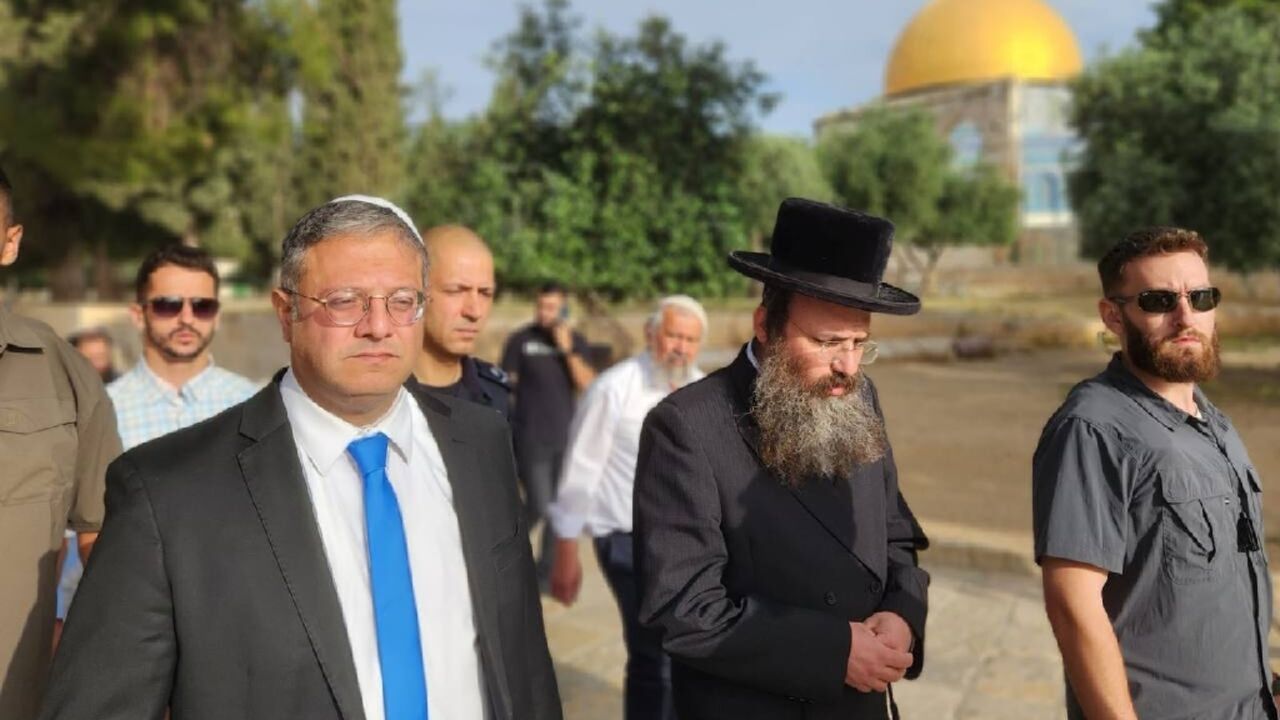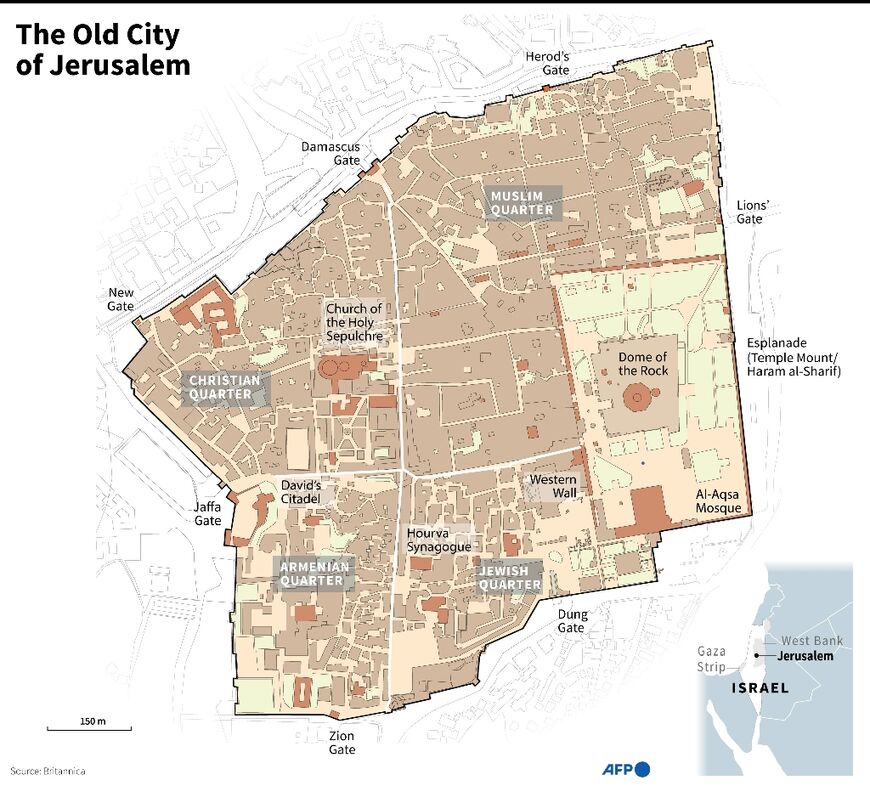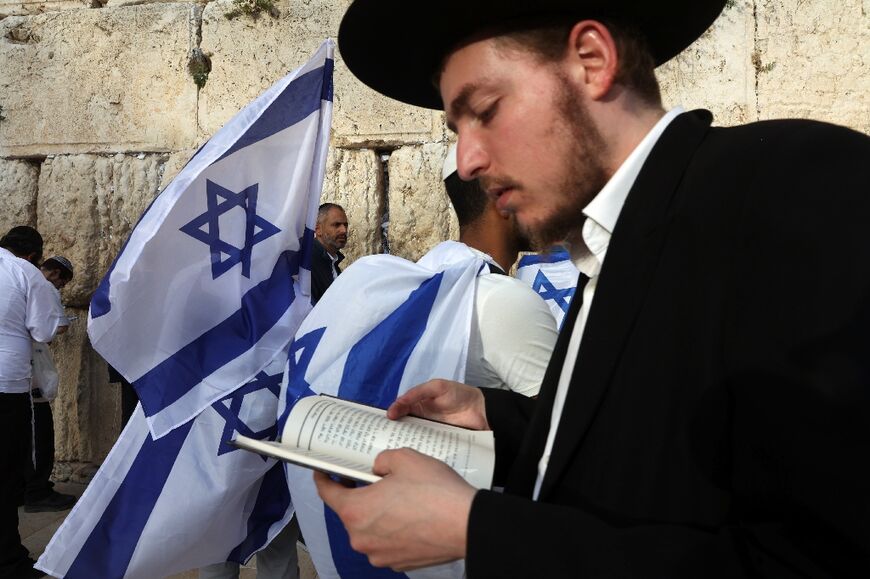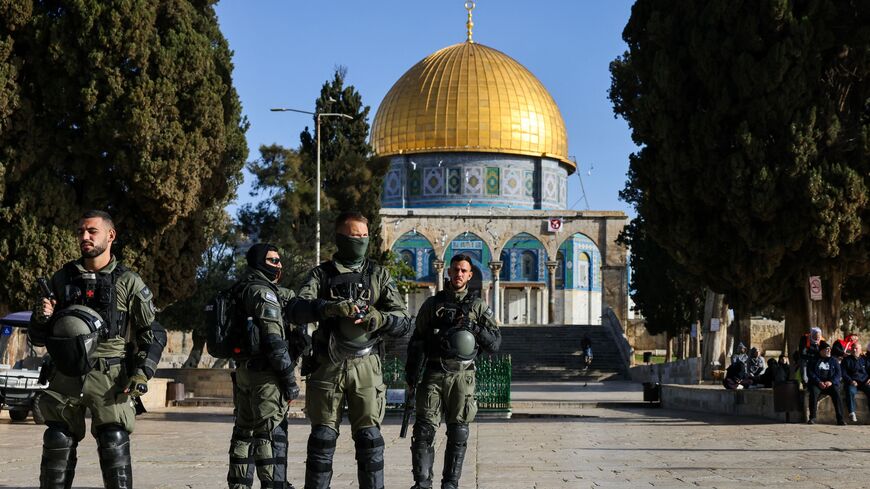Israel far-right minister visits Al-Aqsa compound

Israel's National Security Minister Itamar Ben-Gvir visited the flashpoint Al-Aqsa mosque compound Sunday, a controversial move by the extreme-right politician amid heightened tensions in annexed east Jerusalem.
The move came three days after Ben-Gvir and tens of thousands of Jewish nationalists marched through the Old City and just over a week into a fragile Gaza ceasefire.
"Jerusalem is our soul," Ben-Gvir wrote on Telegram, alongside a photo of himself at the site in the heart of the Old City.
"The threats of Hamas will not deter us, I went up to the Temple Mount!" he wrote, using the Jewish name for the site.
Al-Aqsa mosque is the third holiest site in Islam and is administered by Jordan. Non-Muslims are permitted to visit the site, but not pray there.
The compound is also the most sacred site for Jews, who pray below it at the Western Wall.
Hamas, the militant group that rules the blockaded Gaza Strip, denounced Ben-Gvir's last visit to the site in January and again slammed his action on Sunday.
Israel will "bear responsibility for the barbaric incursions of its ministers and herds of settlers", the group wrote on Telegram.
The move "confirms the depths of danger looming over Al-Aqsa, under this Zionist fascist government and the arrogance of its ministers from the extreme right", said Hamas.
Israeli police confirmed Ben-Gvir's visit in a statement, adding that it passed without incident.
- Old City cabinet meeting -
Later on Sunday, Israel's top politicians held a rare cabinet meeting in the tunnels beneath the Western Wall.
Palestinians fear their use as a vast museum threatens the foundations of Al-Aqsa mosque.
"Time and again, my friends and I have been forced to repel international pressure on the part of those who would divide Jerusalem again," Prime Minister Benjamin Netanyahu said at the start of the meeting.
Some Israeli leaders "were prepared to give in to those pressures", he argued, but "we have acted differently," according to a transcript from his office, celebrating the expansion of Israeli settlements in east Jerusalem which are deemed illegal under international law.
Israel considers all of Jerusalem as its capital, but the Palestinians want the eastern sector, which includes the Old City, as the capital of their future state.
The Jordanian Waqf Islamic affairs council, which administers the mosque compound, described Ben-Gvir's visit as a "blatant storming and desecration of the blessed Al-Aqsa mosque".
"No less dangerous is the call by the occupation (Israeli) government to hold its meeting this morning in the Western Wall area," a Waqf statement said.
Jordan decried Ben-Gvir's actions as a "provocative step" and a "dangerous and unacceptable escalation".
It "represents a flagrant and unacceptable violation of international law, and of the historical and legal status quo in Jerusalem and its holy sites", said foreign ministry spokesman Sinan Majali.
- 'Playing with fire' -
Tours of the site by Jewish nationalists have long been criticised by Palestinians and Arab nations, while Ben-Gvir's visits have taken on added weight since he took office in December.
The office of Palestinian president Mahmud Abbas said "harming Al-Aqsa Mosque is playing with fire".
"(It) will push the region into a religious war with unimaginable consequences that will affect everyone," said Abbas's spokesman, Nabil Abu Rudeineh, in a statement published by the Palestinian news agency Wafa.
The timing of Sunday's visit also holds significance, coming days after extremists marched through the Old City to celebrate east Jerusalem's capture by Israeli forces in the 1967 Six-Day War.
Thursday's event was marred by incidents of violence against Palestinians and journalists, while the United States condemned "the hateful chants such as 'Death to Arabs'" during the rally.
Ben-Gvir's visit also follows a Cairo-brokered truce reached on May 13 between Israel and Islamic Jihad militants in Gaza, ending five days of cross-border fighting.
Egypt's foreign ministry on Sunday pressed Israel to "immediately stop the escalatory practices which inflame the pre-existing state of tension in the occupied (Palestinian) territories".
The Gaza violence killed 33 people in the coastal territory and two in Israel, a citizen and a Gazan labourer.








